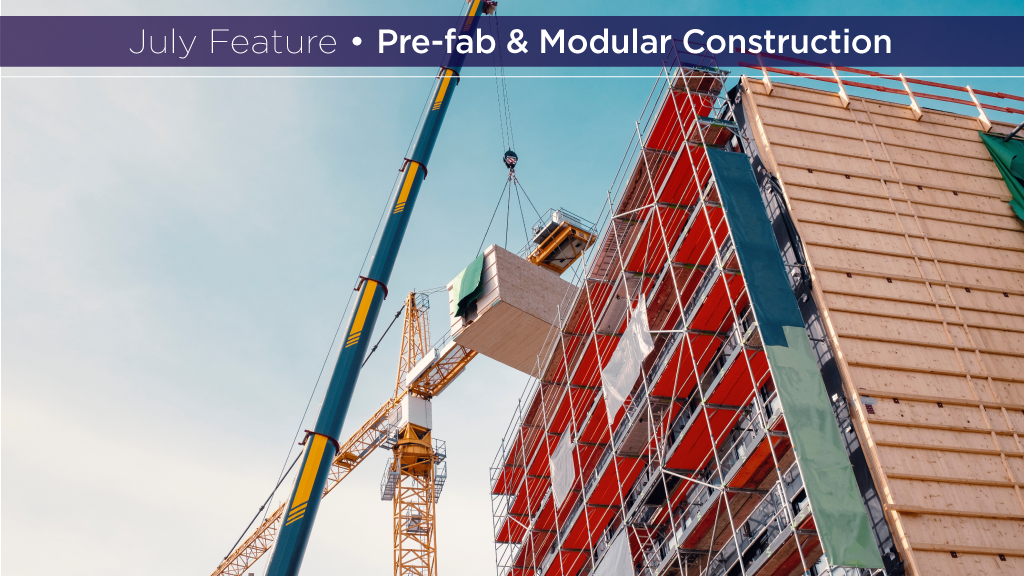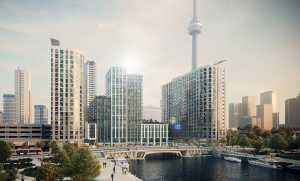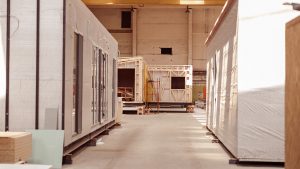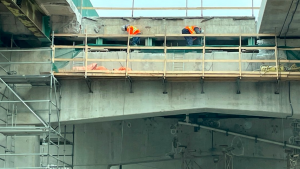The City of Toronto is taking concrete action to accelerate modular and rapid-build construction of housing.
Within a few months, the municipality will have an expanded roster of pre-qualified vendors who can quickly build housing that can be accessed and used by all municipalities in Ontario.
Recently, city staff were directed to increase the list of vendors and make them available to other jurisdictions. Council also took it a step further, ordering Toronto’s chief building official to review and strengthen guidelines, checklists and tools that help facilitate approvals and support those who manufacture buildings partially or completely off-site in a facility.
A report is expected to be brought back to the planning and housing committee by the end of September.
Staff have also been ordered to review and streamline a current program that certifies plans meet the requirements of the Ontario Building Code and report back to the committee with any necessary Toronto Municipal Code amendments by the end of the third quarter of this year.
The move was initiated in response to separate letters from Coun. Brad Bradford, vice-chair of the planning and housing committee, a representative of an Ancaster-based modular manufacturing facility and a coalition of advocates who support building housing of all types.
“To increase the supply of housing — and restore affordability — municipalities like Toronto must take steps to unlock rapid-build construction technologies that will help us build the housing that we need,” Bradford stated in his letter. “Through programs like the Rapid Housing Initiative, we’ve seen the benefits of modular construction and other rapid-build technologies.”
With such technologies, projects like the modular supportive housing site at 540 Cedarvale can be fully constructed within days and with far less impact to the surrounding community, he noted.
“We must continue to pull every policy lever available to us as a municipality to encourage and foster this growing industry.”
Bradford said one of the most important steps Toronto can take is to invite both established and emerging builders of rapid-build construction to do business in the city.
“That means expanding the city’s pre-qualified roster of vendors so that a greater number of builders will be eligible to bid on city-led housing projects. In addition, the city should engage with Infrastructure Ontario to establish a province-wide roster of vendors that all municipalities may have access to.”
More importantly, Bradford wrote, Toronto should also create pathways for builders of modular and other rapid-build construction technologies to have their designs pre-approved.
With adjustments to the city’s existing process for plan certification, builders will be able to achieve efficiencies and drive down costs on their projects by using the same building designs on lots across Toronto, he said, and building permit applications submitted to Toronto Buildings with certified designs will receive approvals in record time.
“All options must be on the table to build the homes needed to house all those who call Toronto home, now and in the future. These are a series of actions that Toronto can take today to secure that future.”
Ali Ozen, CEO of BECC Modular, said in a letter there is an urgent need for high-quality housing that can be manufactured at scale across all of şÚÁĎłÔąĎÍř.
“With a maturing modular housing industry in Ontario and innovation in other modern methods of construction, this is an opportune time for the City of Toronto to seize on this opportunity and to align its efforts with ongoing work taking place to advance a federal housing catalog and a provincial modular housing strategy.”
He said BECC Modular alone will have the production capacity to deliver 2,200 modular structures per year within the next few months and noted point-of-manufacturing inspections save municipal staff time and months or years of time savings for housing providers.
“With industry peers developing other CSA-compliant products and supportive partners in the government and private sectors, there has never been a better time for policy innovation to unlock this potential.”
Zakere Farah, of the volunteer organization More Neighbours Toronto, said modular construction offers a promising solution to expedite the creation of new homes.
“By reducing noise, dust and traffic associated with traditional onsite construction, modular homes offer a more neighbour-friendly building solution for our communities. Additionally, modular construction can be more environmentally sustainable than traditional methods.
“With less waste generated and optimized material usage, modular homes help minimize their carbon footprint, contributing to our collective efforts to combat climate change and preserve our planet for future generations.”
Furthermore, said Farah, the emergence of modular building sites presents an opportunity to create numerous new construction jobs and provide stable employment opportunities.
“These jobs won’t be as affected by weather and seasonal closures and should bring competitive wages. These jobs not only benefit the local economy but also contribute to the socioeconomic vitality of our community.”











Great article. I want to introduce you to Lodestar Structures. A precast concrete Modular building system. Lodestarstructures.com we offer a product designed to rapidly build sustainable and rapid housing, commercial, recreational, multi use, multi storey (etc.) buildings Our system is designed to allow precast companies around the world to manufacture and deliver our products to their local communities.
We’re manufacturers on modular homes, we’ll like to be involve on this, how we can get in touch?